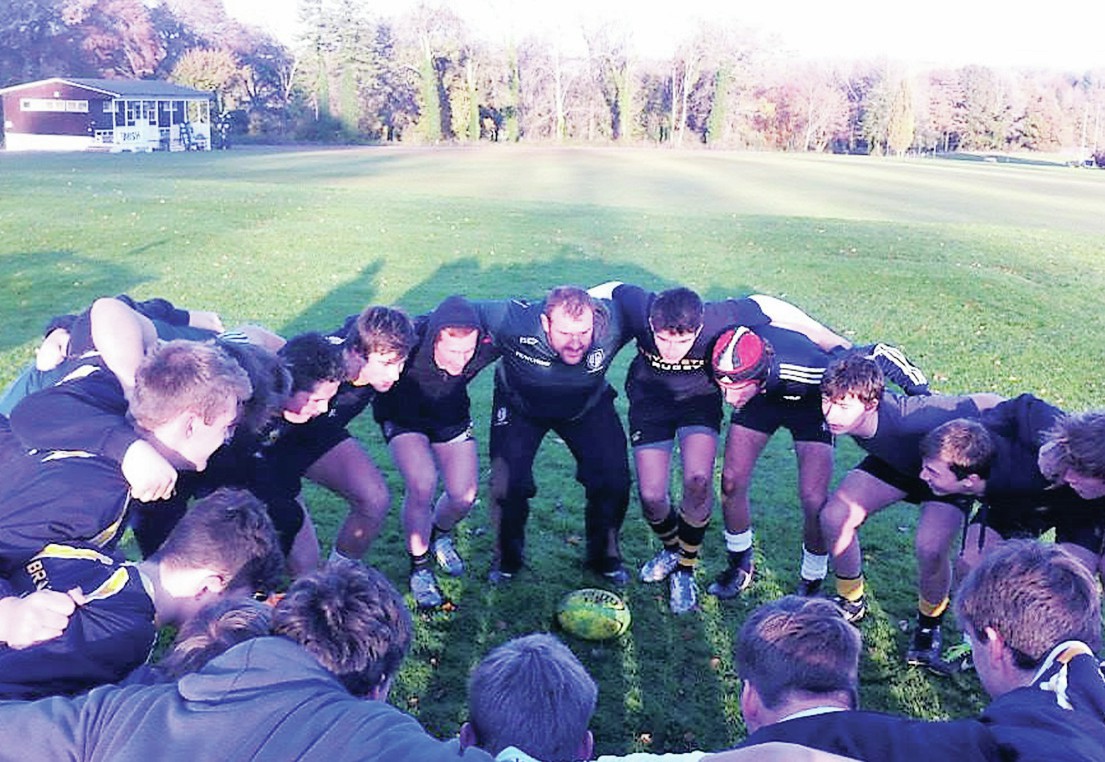
Brendan Gallagher continues his series looking at rugby’s great schools

BRYANSTON is not a venerable institution, it was only founded in 1928, but the school quickly made sport a priority with their first capped rugby player being Bob Whit- worth who played on the wing for Scotland against Ireland in 1936. By all accounts he was one of Scotland’s better players in their 10-4 defeat but notwithstanding he never appeared again.
Next came Richard Hall who was the archetypal schools superstar, a leading player in the First XV, captain of both the School Xl and rowing Vlll and head boy to boot. While a medical student at St Bart’s he captained their then powerful First XV and in quick order played for Richmond, Middlesex and the Barbarians as well as England in wartime interna- tionals.
Hall lost his life on active service as Surgeon-Lieutenant on HMS Kite, sunk by a U-boat 344 north-west of Norway in the Greenland Sea. There were only nine survivors.
The headmaster of the Dorset school at the time, Thorold Coade wrote, “His death robs the Navy and his many friends, not only of a great athlete but one of the finest young men of his generation. In recent years the school have presented the Richard Hall award every season to the player who best reflects Hall’s enduring qualities – those who contributed most to team spirit or perhaps overcame a serious injury in the course of a season.”
A star man at the school in the late 70s was David Trick, an old fashioned flier who as a 16-yearold won the English Schools Intermediate (U17) 100m title in 10.8 seconds, a record for that age group at the time. Subsequent holders of that title include Dwyane Chambers, Mark Lewis- Francis, Craig Pickering, Harry Aikines-Aryeetey and Richard Kilty.
While at the school he won Eng- land School honours and unsurprisingly starred in the Sevens side that reached the Rosslyn Park Festival final in 1979 though he had left by 1980 when the school won a famous victory beating Queens Taunton 24-10 in the final.



At Bath he was prolific throughout his 12-year career with 191 tries, not least in the 1985 John Player Cup final against London Welsh when, wearing the No.15 shirt because Bath didn’t use the 13 jersey, he sped home at Twickenham. For England he was a star turn in provincial games in Argentina in 1981 and won caps against Ireland in 1983 and South Africa the following year, but by the mid-80s England wings were virtually redundant and there was little chance to shine.
Another big Bryanston name who made the journey to Bath was Phil de Glanville who was a member of the team that reached the final of the Festival tournament at Rosslyn Park in 1985. De Glanville, a scrum-half more than a centre at school, went onto great things with Durham and Oxford Universities before captaining Bath during some of their glory years while he also captained England.


The 1980s were the start of the halcyon years for Bryanston with cutting edge coaches Andy Marriott and Mike Pygos working in tandem. They were dubbed the Clough and Taylor of the schools circuit – stoutly supported by a rugby-loving headmaster, Tom Wheare.
There were four unbeaten seasons despite their daunting fixture list, a Rosslyn Park Festival title in 1996 and the agony of losing to Wellington in the 2012 final to a dropped goal in extra time. In fact, don’t mention dropped goals to Bryanston. During this era they lost no fewer than three semi-finals – Epsom, Canford and Brighton College – to late dropped goals.
A first-ever fifteens win over Millfield in 2004 heralded a run of four wins in five fixtures against one of the benchmark teams in school’s rugby while a first win over Wellington also initiated a run of three straight victories over another powerhouse school.
The close ties with Bath continued with the likes of Ben Williams, Rory Jennings, Max Clark, Ollie Devoto and Charlie Ewels automatically making their way to The Rec while, at one stage, Bath had no fewer than three young Bryanston hookers in their academy: Adam Bellamy, Tom Vaughan-Edwards and Tom Woolstencroft although the latter was a No.8 at school. Will Skuse was one of the outstanding England schoolboy forwards of his era but alas a badly dislocated hip brought his senior career to a premature end with Bath.
Henry Pyrgos, Mike’s son, was a standout at scrum-half and has gone on to captain Scotland after moving to Glasgow and then Edinburgh while hooker Huw Bennett, the Lions fitness coach this summer, starred in two unbeaten years (1999 and 2000) and went on to captain Wales. At the start of the era Mutale Malenga was an interesting talent. He represented Zambia in the high jump at the 1984 Olympics. Later a stalwart member of the team, John Pearce, captained the GB handball team at London 2012.
“It was a fantastic time and as every schoolmaster in charge will testify you need various components to come together,” recalls Pyrgos. “Our headmaster couldn’t have been more supportive and wanted rugby in the school’s DNA.
“Then came the exceptional year groups that every coach prays for, especially at a smallish school and on top of that was the quality of the coaching at all levels headed up by Andy and Graham Davies who I can’t praise enough.
Bryanston, age group internationals, roll of honour
David Trick, Malcolm Green, Bruce Tozer, Rhydian Cox, Andrew Rochmankowski (all ENG), Anthony Rochmankowski (SCO), Carwyn Phillips (WAL), Gavin Mee, Luke Bannon, Richard White, Martin Bolton, James Mundy, Tom Leigh (all ENG), Fraser Wilford (SCO), Luke Evans (AUS), Jack Steadman, Ben Williams, Adam Bellamy, Will Skuse, Joe Buckle, Tom Vaughan-Edwards, Tom Woolstencroft, Max Clark, Rory Jennings (all ENG), Macauley Quinn (SCO), Sam Elrick (ITA), Simone Elrick (ITA), Ellis Bevan (WAL), Spencer Davies (KEN)
“We also upped our game in terms of recruiting talent. We were able to offer a couple of scholarships but that can never work long-term so I made a deliberate effort to get around all the Prep schools to identify young rugby playing talent and present Bryanston as an option.
“To help that process along we also staged annual Prep school Sevens and Fifteens tournaments which not only proved hugely enjoyable, but also helped in the process of selling the school.”
Although Bryanston’s rugby heritage is rich they have their challenges with small pupil numbers compared with many on their exceptionally strong fixture list, the legacy of their great years.
“It means you have to sometimes measure success in ways other than purely the win-loss record,” says current master in charge Scott Hobson, the former Bath lock. “And that’s no bad thing. I very much take the view that your school’s rugby career should not necessarily be the highlight, the summit, of your rugby career although obviously you can enjoy some great days. It should be the beginning not the end, you shouldn’t be burnt out.
“A current player who epitomises that would be Ellis Bevan. He was a very good hooker for us who became part of the Bath Academy but then suffered the disappointment of being cut.
That could have been a huge setback but Ellis responded very positively because of his love of the game. In no time he was playing for Wales U18 against England and recently, after leaving Bryanston, he earned himself a contract with Cardiff Blues and has started getting game time.
“For me it’s vital our pupils enjoy long and happy careers playing at whatever level that suits them or that they feel encouraged to coach and get involved in the running of junior clubs or perhaps become referees.
“We had the makings of a decent side last year, we have good younger players next season. Like many other schools we are trying to arrange, after a month’s intensive reconditioning, a few ‘out of season’ games this term.
“Otherwise the time gap – from the end of Christmas term 2019 to hopefully a full resumption in September this year is pretty daunting. That’s a long time for developing teenaged players to go without fully competitive games.”

1 Comment
You must be logged in to post a comment Login
Leave a Reply
Cancel reply
Leave a Reply
You must be logged in to post a comment.
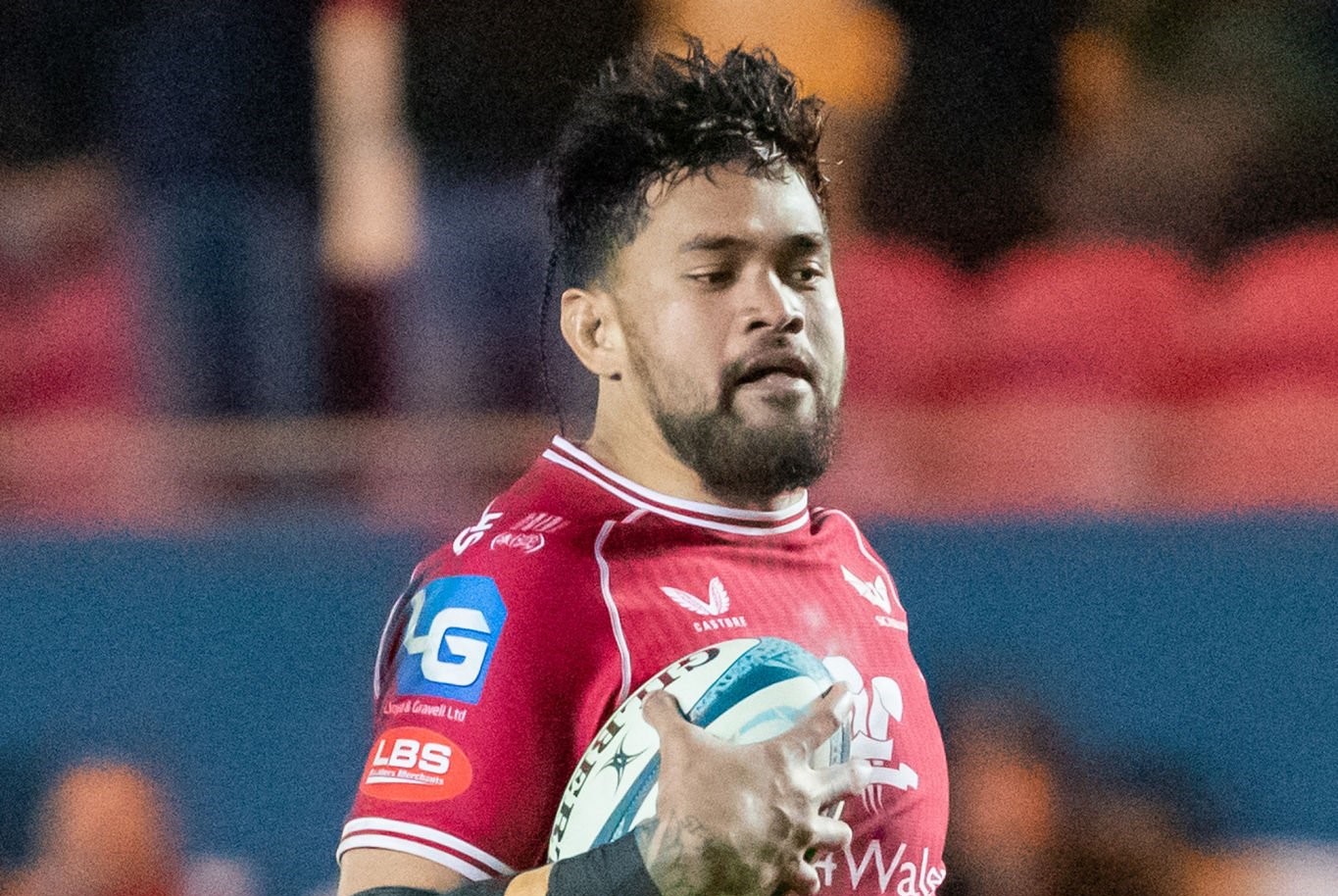
United Rugby Championship
Vaea Fifita’s commanding presence has Scarlets pushing for URC play-off spot
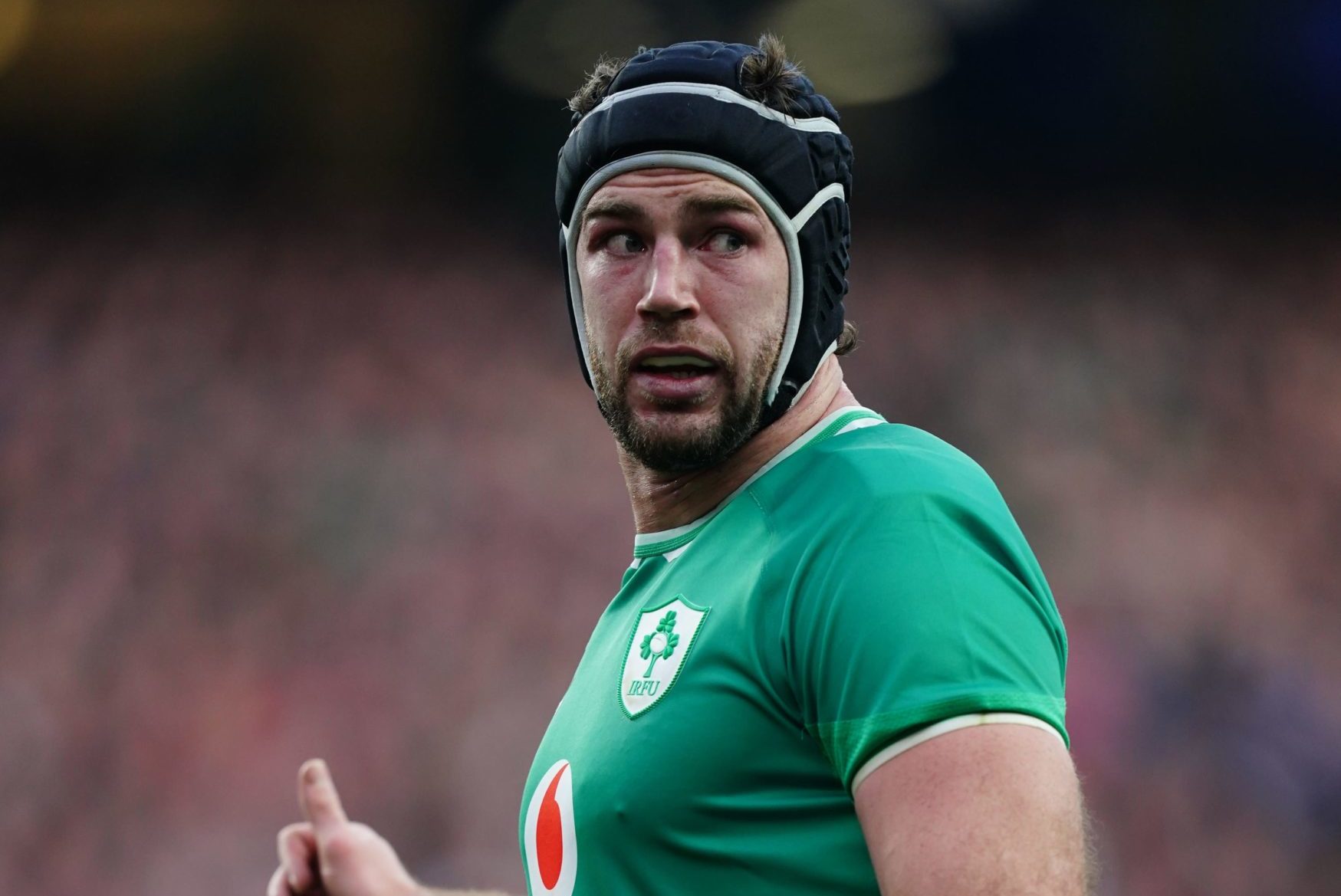
British and Irish Lions
British and Irish Lions Watch: Caelan Doris confirmed to miss the tour with injury

















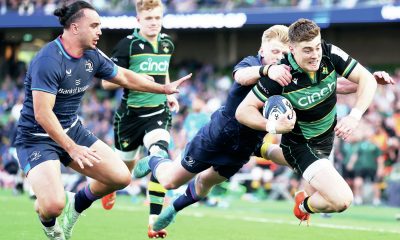

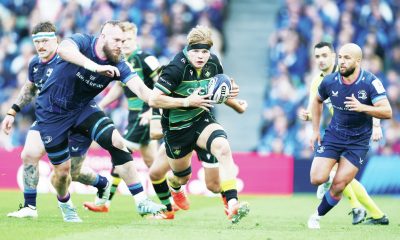

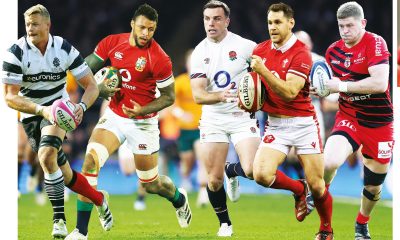

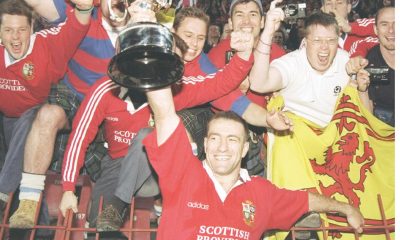

Pingback: he said